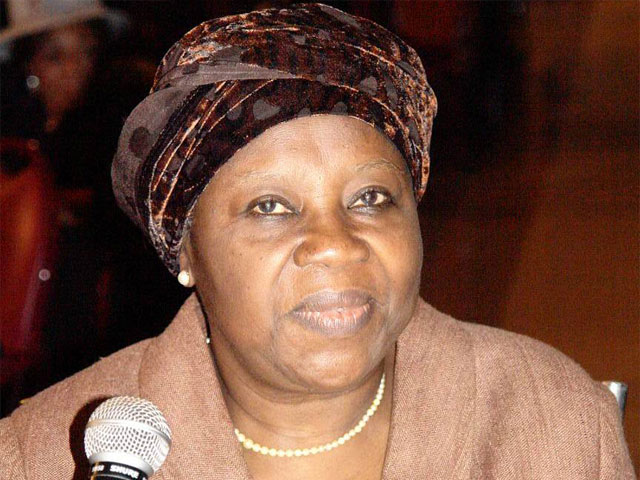The Chief Justice of Nigeria (CJN), Justice Alooma Mukhtar, has promised that the National Judicial Council (NJC) look into the controversy surrounding the questionable judgement delivered by Justice Abubakar Talba of the Abuja High Court in the conviction of a self-confessed pension thief, YakubuYusufu.
This pledge was made through the Chief Registrar of the Supreme Court, Mr Sunday Olorundahunsi, when two groups, the Anti-Corruption Network and the National Association of Nigerian Students (NANS), led a protest march to the Supreme Court in Abuja yesterday.
Both groups threatened to unleash an ‘Egyptian-like protest’ within 14 days if nothing was done about the controversial judgement handed by Justice Talba on Monday when he sentenced the former director of Police Pension Board to a two-year sentence on each of the three-count charge with an option of paying a fine N750,000, a sum the convict promptly paid and regained his freedom. The development was sequel to the guilty plea where Yusufu admitted that he stole N23billion from the police pension funds.
The procession, which was led by a former member of House of Representatives, Dino Melaye, in company of NANS president, YinkaGbadebo, and ex-president of West African Students Union (WASU), Daniel Onjeh, started at 11:36am at the office of the attorney-general and minister of justice, where the protesters delivered a letter of protest entitled: ‘Travesty of Justice and Mockery of Judiciary By Justice Abubakar Talba.’
Melaye who described Talba’s judgement as ‘satanic’, demanded, among others, a re-trial of the pension theft culprit, investigation of Justice Talba, eradication of plea bargain – which he described as archaic – and the entrenchment of Chinese-type capital punishment where the cost of the execution is paid by the family of the culprit. They also gave the CJN a period of 14 days to act, saying failure to do so would make them return to occupy the Supreme Court.
Olorundahunsi, who received the protest letter on behalf of the CJN, admitted that there was the need ‘to take appropriate action’ on the matter in order to reassure the public that the judiciary remained the last hope of the common man and promised that the CJN would look into it.
The police and other security men at the entrance of the Ministry of Justice had barricaded the premises, which led to a mild drama where Melaye jumped the fence to register his displeasure with a police officer who had earlier given a no-entry order, resulting in an altercation between the duo after which the protesters proceeded to the Supreme Court complex.
The protest march ended at the Supreme Court premises with the protesters carrying placards with various inscriptions like: ‘Judiciary: Hope of the Highest Bidder’, ‘Judicial Corruption our Major Problem’, ‘Jankara Judgement for Pension Thief’, ‘N23bn = N750,000 Talbanism’, ‘CJN Investigate Talba’ just as they chanted ‘Injustice Talba Ole.’
Meanwhile, reactions have continued to trail the judgement against pensions thief, Yusufu, with the Ibadan branch of the Nigerian Bar Association (NBA) being the latest to condemn it, calling it ‘ridiculous.
In an interview, the chairman of the branch, Mr OluseunAbimbola said that the sentence was not commensurate with the crime and it would be difficult to say that justice was truly served.
“To say that it borders on the ridiculous is an understatement,” he said. “If someone steals billions and you are asking him to pay a fine of a few thousands and he forfeits assets of a few millions, which he disclosed to you, there is probably a lot more than that undisclosed to you that he gets to keep – and you call that justice?”
“Some people who have supported the plea bargaining structure without a proper knowledge of how it functions in other jurisdictions would be defending that?
“In other jurisdictions where you have plea bargaining, it’s not meant to be a slap on the wrist and told to go and sin no more. It is meant to deter. If your crime is such that entitles a court to sentence you to a maximum term of whether life or 25 years, what happens in other jurisdictions, particularly cases that ordinarily would have entitled you to 25 years, you will do 10 or 7 years, not months.”
He added that the wrong application of the plea bargain would lead to it becoming part of the corruption problem on the part of prosecution.
He also called for a review of the nation’s laws that prescribe the different sentences and terms of imprisonment, describing them as deficient.



Leave a Reply